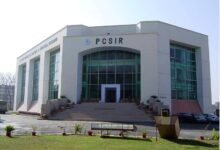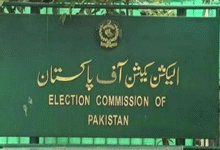PTA directed to provide record, regarding its ban on TikTok application, to citizen

ISLAMABAD: The Pakistan Information Commission (PIC) has directed the Pakistan Telecommunication Authority (PTA) to provide minutes of the meeting and file noting to the citizen, in which it had decided to ban TikTok Application in the country.
The Commission asked PTA to ensure provision of information and minutes of the meeting to the applicant within 10 working days.
As per details, a citizen had approached the PTA to get information regarding the total number of complaints received against TikTok Application, copies of the letters or emails communication with TikTok management, and copies of the notes and minutes of meetings in which the decision of banning the application was taken.
Initially, the PTA refused to share the requested information as the information request was made through Pakistan Citizen Portal, but later, after the intervention of the PIC, the PTA submitted its response and stated that copies of the email send to and received from received from the TikTok Application management and copies of the notes and minutes of meeting in this regard cannot be shared with the applicant under the section 7(e) of Right of Access to Information Act 2017.
However, the commission, in its order, stated that Section 7 (e) relates to records pertaining to the defense forces of the country.
Furthermore, disclosure of “Copies of the letter(s)/ email (s) between the Respondent and the company managing TikTok application is not likely to adversely impact national security of the country nor the commercial activities of the company which manages TikTok application, the Commission observed.
The Seven-page verdict signed by all three information commissioners states that ‘noting on the files’ and ‘minutes of the meeting’ are given qualified and not absolute exclusion from disclosure.
Exclusion of ‘noting on the file’ and ‘minutes of the meetings’ is subject to a final decision.
The disclosure of ‘minutes of meetings’ and ‘noting on the file’ during the deliberative process is protected to ensure that outside influence does not create hindrances in the deliberative process.
However, once a public body has taken a final decision, as is the case in the instant appeal, noting on the files and minutes of the meetings cannot be treated as excluded records.
‘Noting on the file’ and ‘minutes of the meeting’, once the final decision has been taken, reflect the quality of input by different officers which become the basis for the final decision.
Therefore, citizens of Pakistan have the right to have access to ‘noting on the files’ and ‘minutes of the meetings’ which led to the imposition of ban on TikTok application so that they can judge for themselves the input provided by officers involved which led to the ban through the final order.
This commission is of the view that the disclosure of ‘file notings’ and ‘minutes of the meetings pertaining to the imposition of ban on TikTok application will contribute to Making government more accountable to citizens, a Greater level of participation of citizens in the affairs of the government, reducing corruption and inefficiency, promoting sound economic growth’ and Promoting good governance and respect for human rights in the country, Order states.
The commission in its order has also established that citizens can seek information from the government departments using the option of Right to Information in Human Rights category of Pakistan Citizen Portal.
Section 11 (2) of the Right of Access to Information Act 2017 clearly states that a citizen can file a request for information “in any manner”. Furthermore, PM Portal has provided a facility to citizens to file information requests under the Act.






